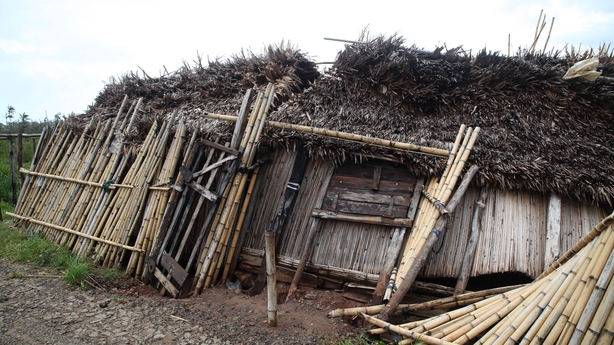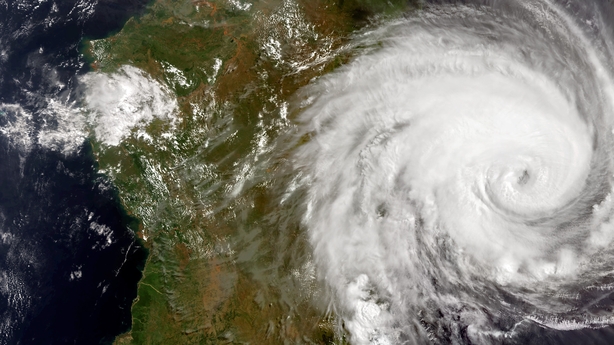One person has died after Cyclone Freddy hit Mozambique, ripping roofs off houses and triggering a lockdown in one port town, local media said, two weeks after 27 died when the storm first made landfall.
The cyclone, which is one of the strongest storms ever recorded in the southern hemisphere, started sweeping onshore by 10pm local time (8pm Irish time) satellite data showed, after hours of battering the southern African coast with rain.
"The town is a no-go zone; no shops or businesses open. Everything is closed. We're locked up," resident Vania Massingue said by telephone from her house in the port town, which is located in the country's Zambezia central province.
The cyclone, one of the strongest storms ever recorded in the southern hemisphere, seemed to have stalled offshore, satellite data showed, but was still battering the coast with rain and was potentially hours away from coming onto land for a second time since it was named on 6 February.
After swirling for 34 days, the weather system is likely to have broken the record for the longest-lasting tropical cyclone.
According to the World Meteorological Organization, the previous record was held by a 31-day hurricane in 1994.

"I can see some houses with roofs torn apart, broken windows and the streets flooded. It's really scary," said Massingue, who works for a local environmental charity.
State broadcaster TVM said one person died when his house collapsed, and that the power utility had switched off the electricity completely as a precaution. All flights were suspended, it added.
The cyclone is slow-moving, which meteorological experts say means it will pick up more moisture off the sea, bringing heavy rainfall.
Around the world, climate change is making hurricanes wetter, windier and stronger, scientists say. Oceans absorb much of the heat from greenhouse gas emissions, and when warm seawater evaporates its heat energy is transferred to the atmosphere, fueling more destructive storms.
More than 171,000 people were affected after the cyclones swept through southern Mozambique last month, bringing heavy rains and floods that damaged crops and destroyed houses, with OCHA putting its death toll at 27 so far, 10 in Mozambique and 17 in Madagascar.

More than half a million people are at risk in Mozambique this time, especially around in Zambezia, Tete, Sofala and Nampula and Zambezia provinces.
The cyclone which is also expected to hit northeastern Zimbabwe, southeast Zambia and Malawi, has set a record for the highest accumulated cyclone energy, a measure of the storm's strength over time, of any southern hemisphere storm in history, according to the US National Oceanic & Atmospheric Administration.

